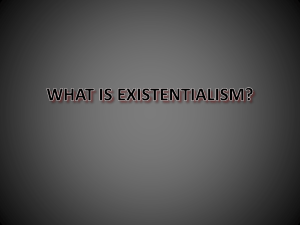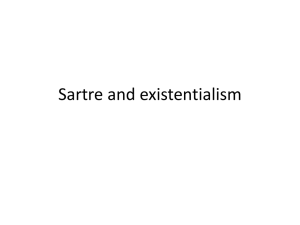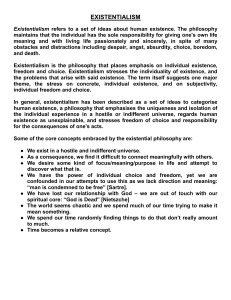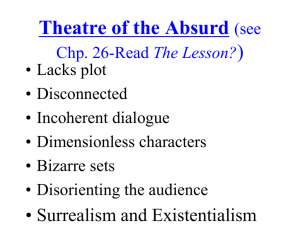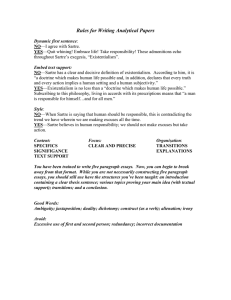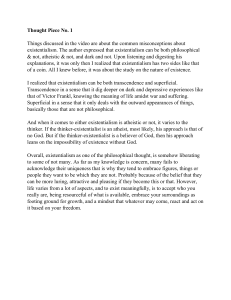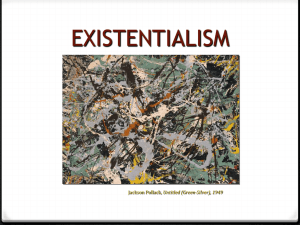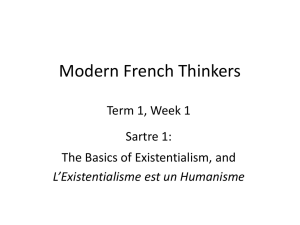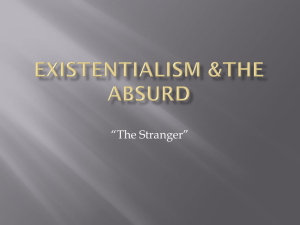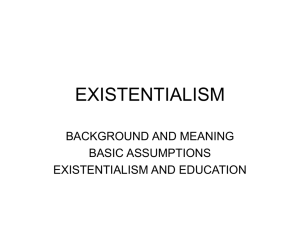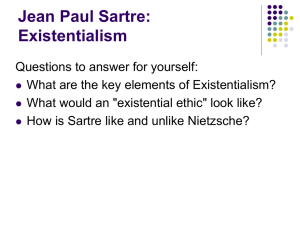PHILOSOPHY 100 (STOLZE)
advertisement
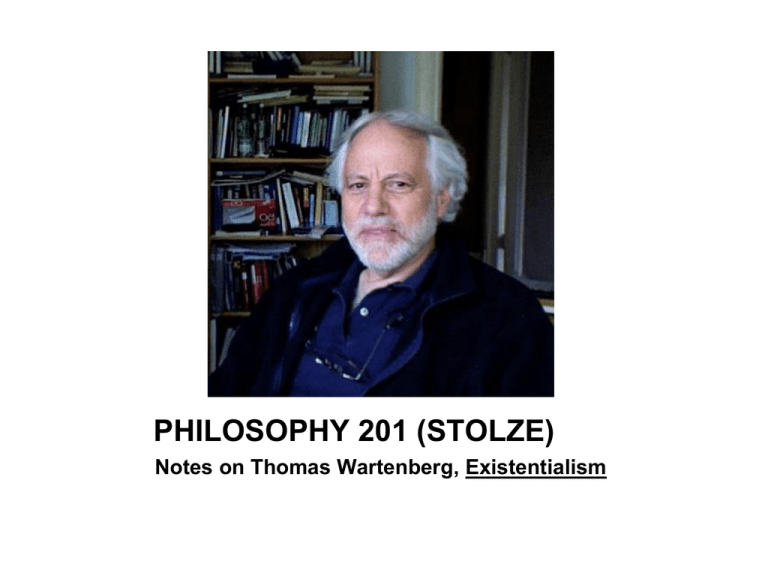
PHILOSOPHY 201 (STOLZE) Notes on Thomas Wartenberg, Existentialism Martin Luther King, Jr. on Existentialism “During the past decade I also gained a new appreciation for the philosophy of existentialism. My first contact with this philosophy came through my reading of [Søren] Kierkegaard and [Friedrich] Nietzsche. Later I turned to a study of [Karl] Jaspers, [Martin] Heidegger and [Jean-Paul] Sartre. All of these thinkers stimulated my thinking; while finding things to question in each, I nevertheless learned a great deal from study of them. When I finally turned to a serious study of the works of Paul Tillich I became convinced that existentialism, in spite of the fact that it had become all too fashionable, had grasped certain basic truths about man and his condition that could not be permanently overlooked. Its understanding of the “finite freedom” of man is one of existentialism’s most lasting contributions, and its perception of the anxiety and conflict produced in man’s personal and social life as a result of the perilous and ambiguous structure of existence is especially meaningful for our time. The common point in all existentialism, whether it is atheistic or theistic, is that man’s existential situation is a state of estrangement from his essential nature. In their revolt against [Georg Wilhelm Friedrich] Hegel’s essentialism, all existentialists contend that the world is fragmented. History is a series of unreconciled conflicts and man’s existence is filled with anxiety and threatened with meaninglessness. While the ultimate Christian answer is not found in any of these existential assertions, there is much here that the theologian can use to describe the true state of man’s existence.” (“Pilgrimage to Nonviolence” (1960): http://mlk-kpp01.stanford.edu/index.php/encyclopedia/documentsentry/pilgrimage_to_nonviolence) Chapter One: Human Existence • • • • Freedom and Determinism Being Human Consciousness Being What One is Not A Quote from Dostoevsky “Even if man were nothing but a piano key, even if this were proved to him by natural science and mathematics, even then he would not become reasonable, but would purposely do something perverse out of sheer ingratitude, simply to have his own way ... then, after all, perhaps only by his curse will he attain his object, that is, really convince himself that he is a man and not a piano key! If you say that all this, too, can be calculated and tabulated ... then man would purposely go mad in order to be rid of reason and have his own way.” (Fyodor Dostoevsky, Notes from Underground) Freedom and Determinism Two Senses of Freedom: • • Social and Political Metaphysical Being Human Heidegger on Dasein = “Being-There” Dasein “takes its own existence (being) to be an issue for it”: • • • Humans are aware Humans are free Humans are concerned about how they exist Consciousness Sartre on In-Itself vs. For-Itself Positional vs. Non-Positional Consciousness Consciouness is a Nothing Ex: Car Mechanic, Waiting for Pierre in a Café, Tom’s Ferrari Being What One is Not • • • • For Sartre a human being “is what it is not and is not what it is” Facticity and Transcendence Concrete Situations Ex: Paul Gauguin Chapter Two • • • Dostoevsky on Happiness vs. Freedom The Problem of Why People Fear Freedom—abandonment, responsibility and anxiety (pp. 37-38) Patterns of Bad Faith—the fluctuation between facticity and transcendence (p. 43)
